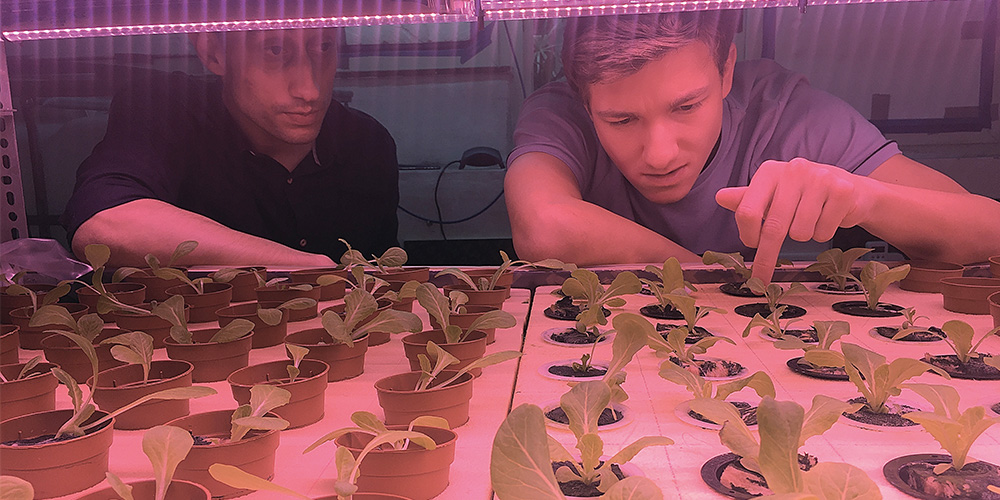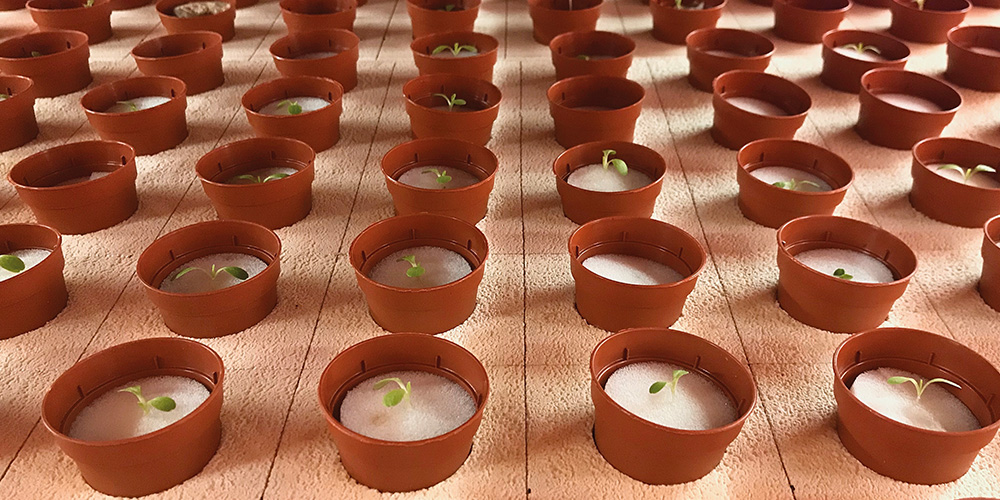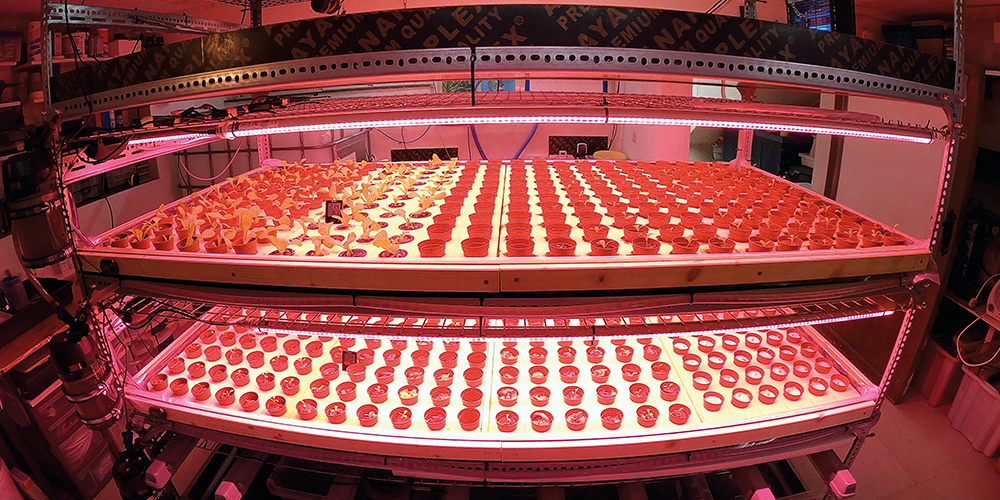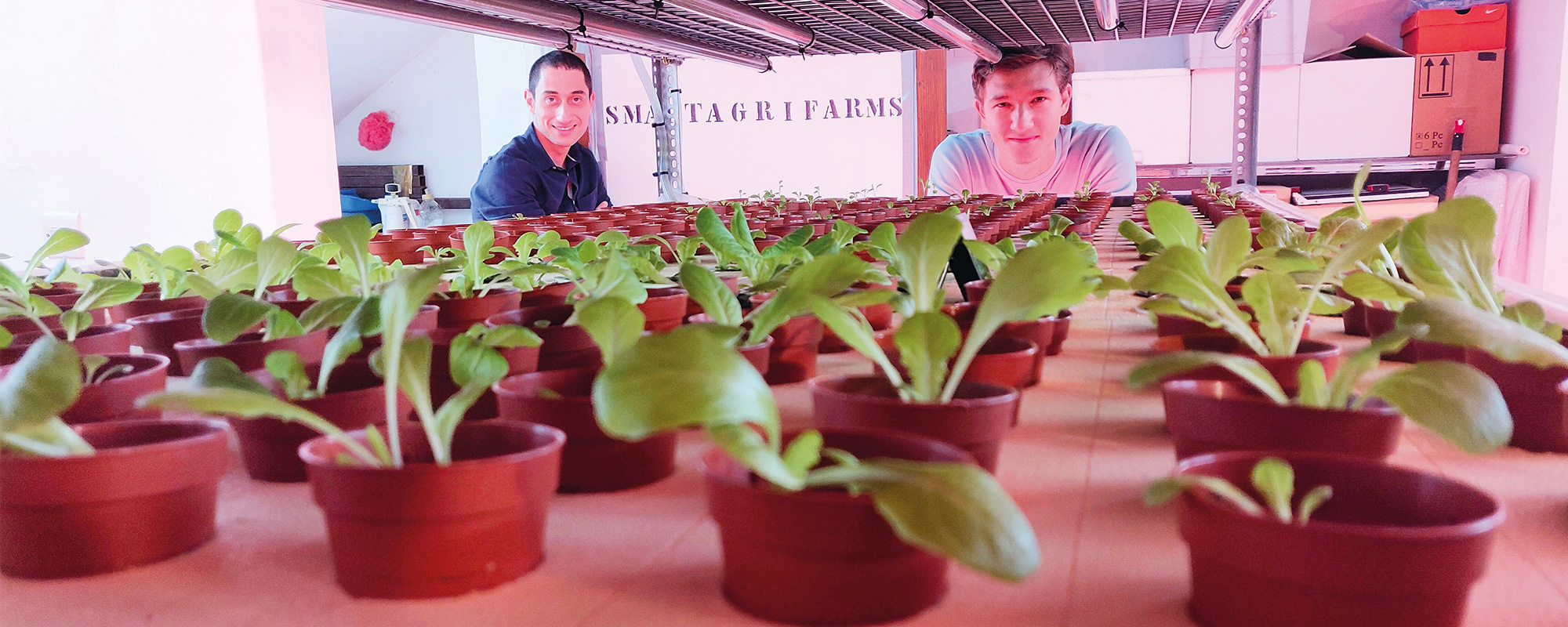Growing edible plants in vertically stacked layers without soil can revolutionise food supply, two entrepreneurs decided. If they were to repeat their journey today, they wouldn’t insist on all-local supplies and would have piloted and tested more. But the system is almost ready, Alex Johnson and Jake Spiteri of Smart Agrifarm tell Daiva Repeckaite.
Imagine plucking some veggies right from your balcony, or harvesting microgreens from under an LED lamp in your basement. No guilt over plastic packaging, no racing against time to consume a week’s worth of shopping before plants wilt, and no dependence on imports that may be destroying the livelihoods of distant communities. When this Malta-based duo approaches investors, they say that in a land-scarce country like Malta, vertical farming would be the answer to numerous issues. Using their science background and entrepreneurial drive, Alex Johnson and Jake Spiteri started developing easy kits for hydroponic (which means soil-free) plant growing. ‘It’s our little ironic joke that we got science degrees to become old-school farmers,’ Johnson comments.

‘We both have no previous knowledge of business or entrepreneurship, so we had to learn a lot about how to start a business and run it feasibly over a long time,’ Johnson admits. ‘And this requires a good deal of knowledge in many sectors – from economics and marketing to state laws that govern businesses.’
The two met as they pursued their BSc and Masters at the University of Malta. Their interest in environment-friendly ventures took them to ClimateLaunchPad, the world’s largest green business ideas competition, in 2015. This was their crash course on startups and business model development. ‘After the competition, we started working on the first proposals for hydroponics and vertical farming. We’d like to mention the help of Prof. Luciano M. Stagno, who joined our team. His technical expertise, entrepreneurial skills, and advice were important for our current project,’ Spiteri adds.
Farmers of the tech age
As they prepare to apply for the TAKEOFF Seed Fund Award, they are refining their system, which they will sell in modules. ‘We intend to showcase the products that can be grown via the system we designed, and how each module could be set up in various locations for reliable food production. Our aim is to sell them to various restaurants and other larger scale food distribution companies who wish to grow their own produce,’ says Johnson.
Idealistically they want to help companies take small steps to be greener, helping individuals and companies grow their crops. ‘The way we see it, each crop grown greener keeps the planet cleaner,’ says Johnson.

According to the National Statistics Office, there are under 1,800 full-time and around 2,000 part-time farmers in Malta. Competition with imports, water scarcity, and climate change pressures make their lives ever more difficult. ‘It isn’t easy to make positive turnovers in agriculture these days, unless one has a great deal of growth area. And then there is of course the skill and labour behind it all,’ Johnson continues. ‘So we figured, let’s use what we know, which is science, to become modern day farmers, and design a system that can grow produce effectively, in high yields, without the need for pesticide or fertilisers. In essence, our produce is organic, but because of certain laws we cannot actually label it that way. More importantly, this technology can be applied in any household.’
The duo is high on excitement ‘to see it go through to the end, from a pen and paper [sketch] to a running system with great potential.’ According to Johnson, it is essential for entrepreneurs to be optimistic and not let themselves be disheartened easily. ‘Having said this, being realistic is also important. We always wanted to pursue a business idea which is sustainable both as a business model and environmentally. If things do indeed go as well as we hope for locally, we will expand the business overseas.’
Science meets enterprise
The duo supported each other when the going got tough. ‘We wasted a lot of time relying on many people to get back to us with details about their products or services, and this delayed us many times,’ Johnson remembers. ‘This was especially true when trying to rely on local outlets. In hindsight, though we really wished to use as many local supplies as possible, when it comes to cost and efficiency, imported supplies are better unfortunately. Knowing this earlier could have saved us a good couple of years!’
The team took their time to study similar systems, as they ventured into an area they admit to initially having no knowledge about. ‘This helped us understand our limitations, to persevere and not falter when problems arise,’ Johnson continues. And yet, he says that their chemistry research background trained them in problem-solving. ‘We had many days and hours sitting down throwing ideas around to find solutions for each [issue], and the dynamic is very good. I think one key notion to point out is the importance of finding a balance between perseverance on a problem till it’s solved, and knowing when to push aside an idea and think of another solution,’ he says. ‘We are used to analysing data and establishing if something is working as predicted or not. If it’s not working, we troubleshoot the process and determine what can be improved,’ Spiteri reiterates. He says they would apply this approach even if a looming obstacle threatened to break their business.

Spiteri likes to draw up to-do lists and set goals. He sees himself as an organised person, but the world of business sometimes demands leeway. ‘Being organised is crucial when we have target dates and deadlines. However, throughout the years we have learnt to leave margin for flexibility and change. In this sense, spontaneity is useful because we can alter the project or go for something different in case things do not go as predicted.’
As they approached the TAKEOFF business incubator at the University of Malta, they brushed up on another key startup principle: testing, testing, and more testing. ‘We wanted to do a full-scale system right from the bat, but over time, and with the aid of TOSFA funding, we came to understand the importance of a pilot project as a cornerstone. This allowed us to learn a great deal on our idea, whilst not having to commit to a certain degree of funding, which might have cost us our own and investor money and a great deal of time,’ Johnson says.
The goal now is to raise enough money to make a living from their passion project. ‘We would be very happy and satisfied if we were able to employ other people full- or part-time to keep the business going and grow,’ says Johnson, as he dreams of overseas expansion. Meanwhile, the two hope to find many customers who are interested in growing their own food.





Comments are closed for this article!